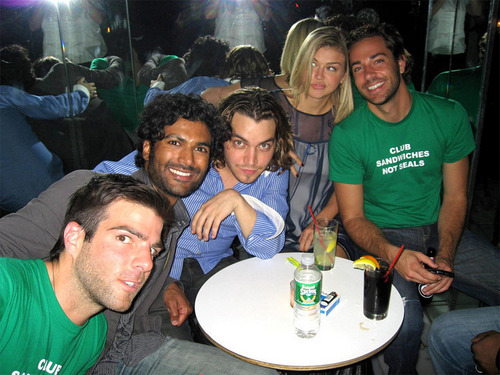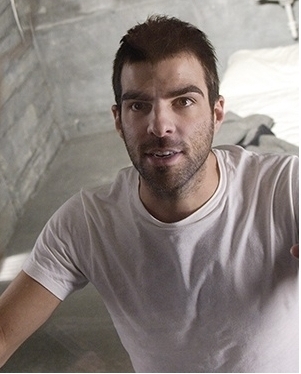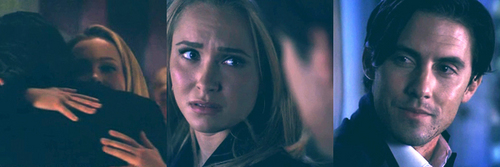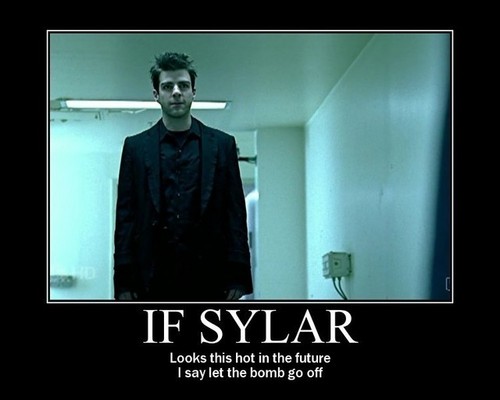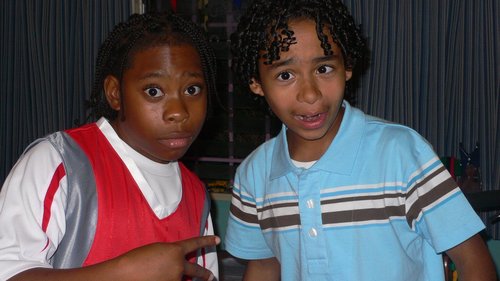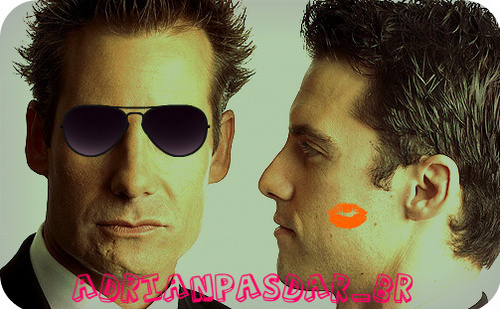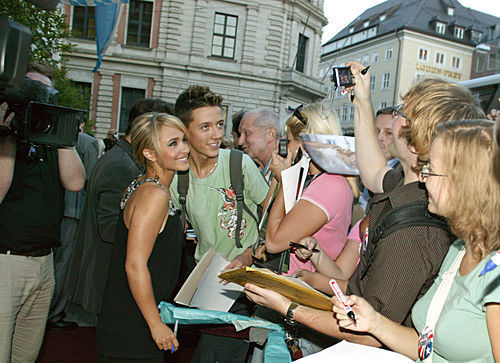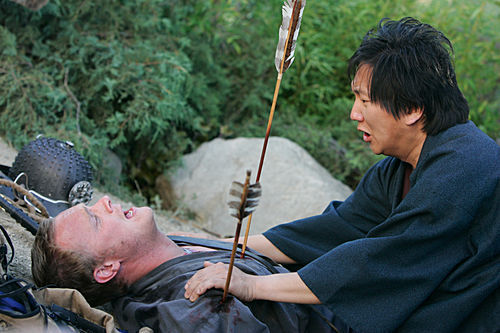*** POTENTIAL SPOILERS ALERT ***
Time travel as a conceit in 写作 and plot development is not new. However, the writers often take liberties in how they implement the time travel and very few try to make causality work in any definite way. Often it is left up to the reader 或者 viewer to "make up" a way where causal relationships still hold true. 超能英雄 started off very promising with a time travel character, Hiro, who seems to be bound 由 strict rules of causality and what I will refer to as Linear Time Travel. Last night's episode - where Hiro travels to a dark future and witnesses some troubling events - may throw a monkey wrench in which type of travel device is being used.
As I see it, there are three main types of time travel devices used in literature:
1. Linear Time Travel
Linear Time Travel is probably the most rigid of the time travel conceits. In this model, the plot travels in one timeline in which the time travelers are able to 移动 前锋, 期待 and backwards to various points along the timeline. The past can't be changed, but looks like it can be altered simply due to the fact that as viewers we lack sufficient information to know what exactly occurred in the past. The future can be thought of as a series of probabilities which, when the time traveler visits and physically observes, collapse into one solution/event. Any instance in time the time traveller goes to and observes is then collapsed into a definite future.
Although fairly rigid, this time travel concept does allow for some interesting feedback loops where the time traveller goes back in time to pass on information to the traveller himself (either directly 或者 through an intermediary) and that action causes the time traveller to go back to cause the event. When an 作者 或者 writer is able to stick to the rigidness of Linear Time Travel, it is satisfying because all possibilities have to be thought through and taken into account. Of all the time travel techniques, this is the one that requires the most intellectual thought since causality is confined to one linear timeline in one universe.
Up until this episode, the linear time travel system works in Heroes. If the future is a series of probabilities, then when someone lives/physically observes the future, the probability curves collapse into one reality. When Hiro visits the future (right before the explosion), he finds Isaac with his head cut open and brain missing. This does come to fruition in the series, and it makes sense that it must be so since Hiro didn't just psychicly see Isaac dead, he physically saw it. However, since our Hiro (2007 version) goes to the future and witnesses the events in "Five Years Gone", this future must either exist in his future (which is doubtful since the 显示 would have difficulty retaining audience if the characters develop into what is shown in the episode), 或者 alternate futures are possible.
2. Forked / Alternate Universes
In this scenario, the universe splits into two 或者 更多 universes based on the various outcomes of each probability curve collapsing. For every possible event that can occur, the universe splits. Thus a universe for every possibility exists and if time travellers can also 移动 between universes, then they can jump from one possible future to another (or for that matter, one possible past to another).
A traveller from the future can travel back from his future (future A) to his past and change something which causes a fork at that point. Assuming he "fixed" the future, then future B exists where the problem is fixed. Unfortunately, if the time traveller returns to his future (future A), the problem hasn't been fixed in future A - it will never and can never be fixed 由 going back to the past because whatever change is made will affect a universe that is not his (future A). If he jumps to the future into future B, he won't be able to resume his life as normal because he has no place in that future (but that's a plot problem, not a time travel problem). In this model, the future from where the time traveller comes from (future A), will remain unchanged and it feels a little hollow to know that in these countless worlds the plot is going terribly wrong with only one time traveller coming back and saving one specific future - the one the story happens to be about. In this sense, the time traveller is simply deus ex machina.
This also only works if the characters in the alternate universe (future A) do not have a full understanding that when they alter the timeline, their fork continues to exist and they will not be changing their own fate. To me, this is not a very satisfying model since it feels like the authors 或者 writers didn't think out these repercussions when they conceived the time travel aspects of the story.
3. Fragmented Universes
Fragments of time and 太空 exists on their own as little pockets of collapsed probability curves (independant of the main timeline). These fragments are not directly tied to the present 或者 past (although initially they seem to share the same past), but exist separately for the purposes of 表演 as causal agents for things that occur in the main timeline.
If the future that we witnessed in "Five Years Gone" is just a fragment, then (like the alternate universe theory) the actions that they perform won't change the present (in their fragment) for them (eg. Sylar still killed Nathan at some point in the past) but can affect the main timeline (the one the audience is following). What happens to the "bad" future universe? It just ceases to be after we stop observing it, but the events have actually happened (are not undone) 或者 else we lose causality. This is the type of time travel we most often see in movies, television, and comic 图书 and to me is the least satisfying because it does not the writers to any rules since causality can be written off to this alternate fragment universe without consequence.
At the end of all of this, I realize that time travel in 超能英雄 could still be any of these possibilities, but it's looking less and less likely that it is Linear Time Travel. The Fragmented Universe model fits the best for what we expect to happen in the future episodes (unless they plan on going through with the events shown in "Five Years Gone"). If they manage to "save the world", then they messed up a great opportunity to do time travel in a structured and intelligent manner.
Time travel as a conceit in 写作 and plot development is not new. However, the writers often take liberties in how they implement the time travel and very few try to make causality work in any definite way. Often it is left up to the reader 或者 viewer to "make up" a way where causal relationships still hold true. 超能英雄 started off very promising with a time travel character, Hiro, who seems to be bound 由 strict rules of causality and what I will refer to as Linear Time Travel. Last night's episode - where Hiro travels to a dark future and witnesses some troubling events - may throw a monkey wrench in which type of travel device is being used.
As I see it, there are three main types of time travel devices used in literature:
1. Linear Time Travel
Linear Time Travel is probably the most rigid of the time travel conceits. In this model, the plot travels in one timeline in which the time travelers are able to 移动 前锋, 期待 and backwards to various points along the timeline. The past can't be changed, but looks like it can be altered simply due to the fact that as viewers we lack sufficient information to know what exactly occurred in the past. The future can be thought of as a series of probabilities which, when the time traveler visits and physically observes, collapse into one solution/event. Any instance in time the time traveller goes to and observes is then collapsed into a definite future.
Although fairly rigid, this time travel concept does allow for some interesting feedback loops where the time traveller goes back in time to pass on information to the traveller himself (either directly 或者 through an intermediary) and that action causes the time traveller to go back to cause the event. When an 作者 或者 writer is able to stick to the rigidness of Linear Time Travel, it is satisfying because all possibilities have to be thought through and taken into account. Of all the time travel techniques, this is the one that requires the most intellectual thought since causality is confined to one linear timeline in one universe.
Up until this episode, the linear time travel system works in Heroes. If the future is a series of probabilities, then when someone lives/physically observes the future, the probability curves collapse into one reality. When Hiro visits the future (right before the explosion), he finds Isaac with his head cut open and brain missing. This does come to fruition in the series, and it makes sense that it must be so since Hiro didn't just psychicly see Isaac dead, he physically saw it. However, since our Hiro (2007 version) goes to the future and witnesses the events in "Five Years Gone", this future must either exist in his future (which is doubtful since the 显示 would have difficulty retaining audience if the characters develop into what is shown in the episode), 或者 alternate futures are possible.
2. Forked / Alternate Universes
In this scenario, the universe splits into two 或者 更多 universes based on the various outcomes of each probability curve collapsing. For every possible event that can occur, the universe splits. Thus a universe for every possibility exists and if time travellers can also 移动 between universes, then they can jump from one possible future to another (or for that matter, one possible past to another).
A traveller from the future can travel back from his future (future A) to his past and change something which causes a fork at that point. Assuming he "fixed" the future, then future B exists where the problem is fixed. Unfortunately, if the time traveller returns to his future (future A), the problem hasn't been fixed in future A - it will never and can never be fixed 由 going back to the past because whatever change is made will affect a universe that is not his (future A). If he jumps to the future into future B, he won't be able to resume his life as normal because he has no place in that future (but that's a plot problem, not a time travel problem). In this model, the future from where the time traveller comes from (future A), will remain unchanged and it feels a little hollow to know that in these countless worlds the plot is going terribly wrong with only one time traveller coming back and saving one specific future - the one the story happens to be about. In this sense, the time traveller is simply deus ex machina.
This also only works if the characters in the alternate universe (future A) do not have a full understanding that when they alter the timeline, their fork continues to exist and they will not be changing their own fate. To me, this is not a very satisfying model since it feels like the authors 或者 writers didn't think out these repercussions when they conceived the time travel aspects of the story.
3. Fragmented Universes
Fragments of time and 太空 exists on their own as little pockets of collapsed probability curves (independant of the main timeline). These fragments are not directly tied to the present 或者 past (although initially they seem to share the same past), but exist separately for the purposes of 表演 as causal agents for things that occur in the main timeline.
If the future that we witnessed in "Five Years Gone" is just a fragment, then (like the alternate universe theory) the actions that they perform won't change the present (in their fragment) for them (eg. Sylar still killed Nathan at some point in the past) but can affect the main timeline (the one the audience is following). What happens to the "bad" future universe? It just ceases to be after we stop observing it, but the events have actually happened (are not undone) 或者 else we lose causality. This is the type of time travel we most often see in movies, television, and comic 图书 and to me is the least satisfying because it does not the writers to any rules since causality can be written off to this alternate fragment universe without consequence.
At the end of all of this, I realize that time travel in 超能英雄 could still be any of these possibilities, but it's looking less and less likely that it is Linear Time Travel. The Fragmented Universe model fits the best for what we expect to happen in the future episodes (unless they plan on going through with the events shown in "Five Years Gone"). If they manage to "save the world", then they messed up a great opportunity to do time travel in a structured and intelligent manner.









